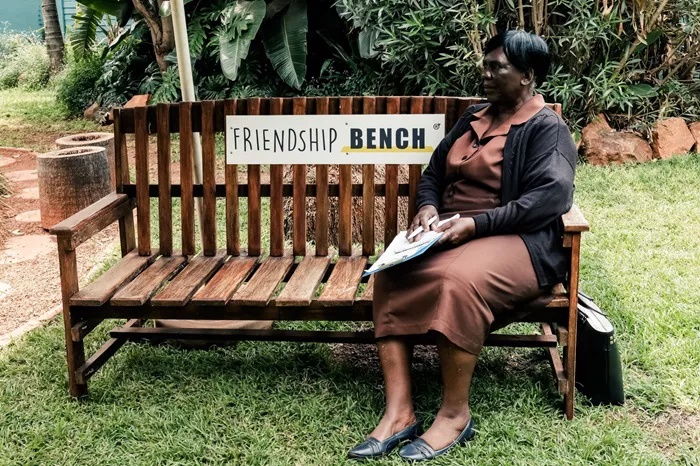In Zimbabwe, a groundbreaking approach to mental health therapy has garnered international attention as it spreads to communities in need across the globe.
Amidst Zimbabwe’s scarce clinical mental health services, Tambudzai Tembo faced overwhelming despair after her son, the family’s main provider, was arrested last year. With professional help out of reach, Tambudzai contemplated suicide until a simple wooden bench and a compassionate grandmother intervened.
This grassroots therapy, known as the Friendship Bench, has revitalized traditional wisdom by placing benches in discreet corners of community clinics, churches, and universities. Trained grandmothers, equipped with basic problem-solving skills, offer invaluable one-on-one support to individuals like Tambudzai, bridging a critical gap in mental health care.
The initiative, spearheaded by psychiatry professor Dixon Chibanda, has not only transformed local mental health care in Zimbabwe but has also gained recognition abroad. Chibanda’s efforts were recently acknowledged with a $150,000 prize from the McNulty Foundation, highlighting the Friendship Bench’s impact on global mental healthcare reform.
Inspired by its success, similar initiatives have emerged in Vietnam, Botswana, Malawi, Kenya, Tanzania, and preliminary stages in London. In the United States, the Friendship Bench model has been adapted to address mental health challenges, including social isolation, in communities across New York and Washington.
HelpAge USA, under the DC Grandparents for Mental Health initiative, has trained over 20 grandmothers to provide empathetic support in Washington’s underserved neighborhoods. Cindy Cox-Roman, President of HelpAge USA, emphasizes the role of elders in destigmatizing mental health discussions and fostering community resilience.
The initiative’s expansion reflects a growing recognition of the need for accessible and culturally sensitive mental health support, particularly in the aftermath of global crises like the COVID-19 pandemic. Dr. Jehan El-Mayoumi, an expert with HelpAge USA, underscores the trust and comfort provided by the Friendship Bench approach, which has resonated deeply with communities facing mental health challenges.
The concept of the Friendship Bench emerged from a tragic incident in 2005 when Chibanda, then one of only a handful of psychiatrists in Zimbabwe, realized the limitations of clinical care. Moved by the suicide of a patient unable to afford transportation for a clinic visit, Chibanda enlisted local grandmothers as community mental health ambassadors.
Today, supported by Zimbabwe’s Ministry of Health and the World Health Organization, over 2,000 grandmothers participate in the network, providing essential mental health support to hundreds of thousands of Zimbabweans annually. Personal stories like Tambudzai Tembo’s highlight the profound impact of these grassroots interventions on individual lives and community well-being.
As the Friendship Bench initiative continues to grow, its legacy extends beyond therapy sessions to community empowerment and advocacy against mental health stigma. Grandmothers like Siridzayi Dzukwa, who intervened in Tambudzai’s darkest moment, have become symbols of hope and compassion in Zimbabwean communities, where mental health is increasingly recognized as a shared concern rather than a taboo.
Through benches and grandmothers’ ears, Zimbabwe’s innovative approach to mental health care is setting a precedent for inclusive and effective community-based interventions worldwide. As the initiative expands, its promise lies not only in healing individuals but also in fostering resilient, supportive communities where mental health is embraced openly and compassionately.
Related topics:
- Paris Olympics Prepare Medical Staff for Endurance Event Challenges
- Tajikistan Advances Universal Health Coverage Through Robust Primary Health Care
- What Does “Dia” Mean in Blood Pressure?


